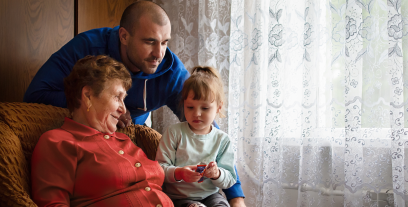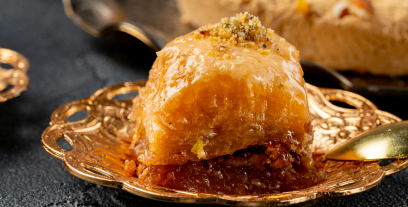Eid al-Adha, one of the most important religious holidays in the Islamic world, is a sacred celebration rich in traditions that have been passed down for centuries. The holiday holds deep spiritual meaning, as it commemorates the devotion of Prophet Ibrahim (Abraham) to God through the ritual of sacrifice.
Throughout the holiday, Muslims emphasize the values of solidarity and helping those in need. After the special Eid prayer, sacrificial animals are slaughtered, and the meat is distributed equally, reinforcing the spirit of brotherhood and unity within the community. Family visits and holiday greetings also play a major role, strengthening relationships and spreading love and compassion.
Eid al-Adha begins on the 10th day of Dhu al-Hijjah, the last month of the Islamic (Hijri) calendar, and lasts for four days. Since the Islamic calendar is lunar, the holiday comes about 11 days earlier each year in the Gregorian calendar. The start of the festival also coincides with the completion of the Hajj pilgrimage, marking a time of both spiritual devotion and communal support.
In the days leading up to Eid al-Adha, homes are thoroughly cleaned, new clothes are bought, and special dishes are prepared in accordance with the holiday’s spirit. As the festival approaches, families carefully choose sacrificial animals and ensure all preparations are made in line with religious guidelines. Loved ones come together to plan meaningful celebrations that enrich the spiritual significance of the holiday.
You Might Also Like: Must-Have Items for Your Holiday Suitcase
The day before Eid al-Adha, known as Arafa Day, is observed with special rituals and spiritual preparation. On this day, people traditionally visit cemeteries, recite prayers, and remember lost loved ones. Final preparations for the holiday are made, and plans for the sacrificial ritual are finalized. The evening is often spent in prayer and reflection to spiritually prepare for the coming days of celebration.
On the morning of Eid, Muslims gather at mosques for the special Eid prayer, performed in the early hours of the day. After the prayer, the ritual animal sacrifice takes place. It is essential that the sacrifice is performed in accordance with religious rules. The meat of the sacrificed animal is shared, primarily with those in need, underlining the core values of solidarity and compassion.

Among the cherished traditions of Eid al-Adha is visiting elder family members. Hands are kissed as a sign of respect, and heartfelt holiday greetings are exchanged. Neighbors, friends, and relatives gather to share in the joy of the festival. Meals prepared with sacrificial meat are served to guests, and children receive pocket money (Eidi) as well as sweets prepared specially for the holiday. These moments of togetherness reinforce bonds and reflect the spirit of giving.
Eid al-Adha customs can vary across different regions of Türkiye:

Eid tables are filled with traditional dishes that bring families and friends together. Kavurma (braised meat), various meat-based meals, and an array of delicious desserts are essentials during Eid. Guests are treated to classics like baklava, revani, syrup-soaked sweets, and traditional beverages, adding a rich flavor to the celebration.
Some Eid traditions have adapted to modern lifestyles. With the rise of technology, holiday greetings are often shared through phone calls, text messages, or video chats with loved ones who are far away. Additionally, traveling to other cities or holiday destinations during the Eid break has become a popular tradition, especially among the younger generation.
Hotel stays have become increasingly popular during Eid al-Adha. Barut Hotels offers guests a perfect blend of traditional and modern holiday experiences, keeping the spirit of the holiday alive. Guests can enjoy classic Eid dishes at the hotel’s restaurants, while children participate in special festive activities. Families have the opportunity to spend quality time together in a warm and joyful atmosphere.
Recommended For You
Rumba and Flamenco: Music Genr...
The warm breeze of the Mediter...
Read MoreHow to Cope with Jet Lag...
Long-distance flights often ca...
Read MoreDecoration Tips for Small Home...
Small homes are living spaces ...
Read More